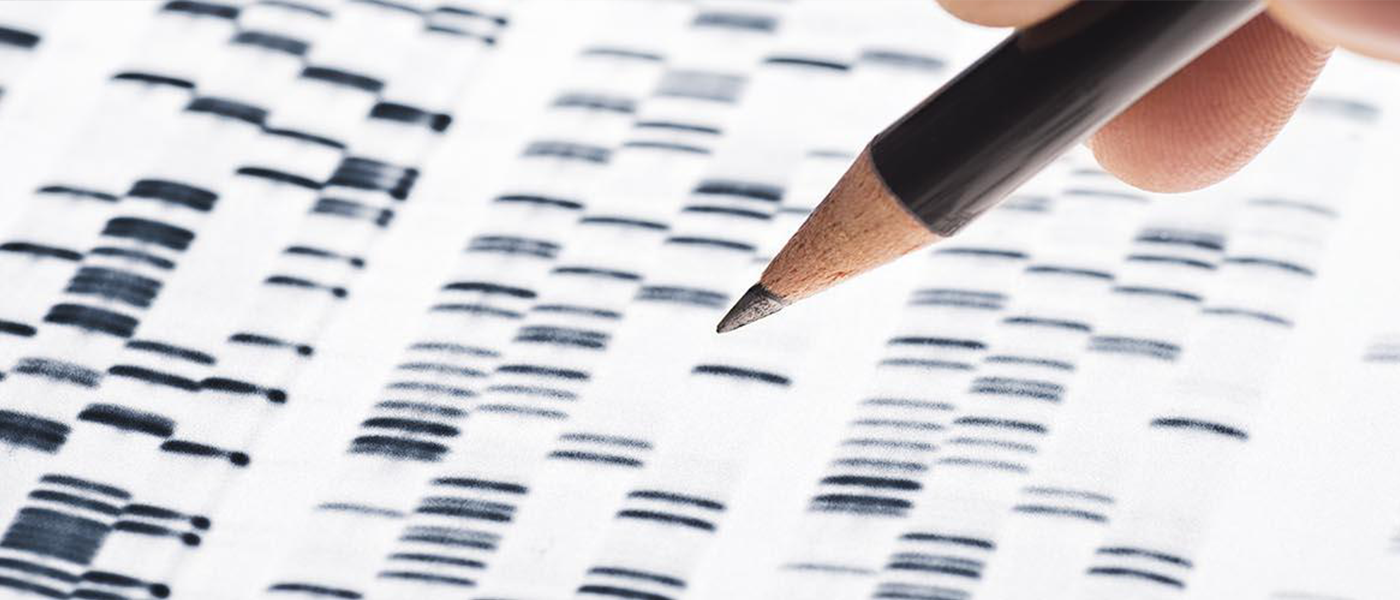Molecular Biology is a fundamental area of investigative research in Biology that employs new technologies and experimental approaches to examine fundamental processes in all living organisms. In the course of these investigations, we use wide variety of model organisms, including mice, guinea pigs, human tissue cell cultures, the nematode species Caenorhabditis elegans, the plant Arabidopsis thaliana, model bacteria and the fruit fly Drosophila melanogaster. The research is of immediate relevance to human health in many areas including cancer, inherited genetic diseases and disease resistance, DNA repair, and neurosystem development and function. We welcome strong applicants as undergraduate researchers, graduate students and postdoctoral fellows.
Expandable List
- BIOL 6B03 / Plant Metabolism and Molecular Biology
- BIOL 6P03 / Medical Microbiology
- BIOL 6DD3 / Molecular Evolution
- BIOL 709 / Special Topics in Biology
- BIOL 715 / Topics in Evolutionary Genetics
- BIOL 720 / Bioinformatics
- BIOL 721 / Topics in Molecular Evolution
- BIOL 775 / Molecular Microbiology and Microbial Genomics
- Education *750 / Principles and Practices of University Teaching
Explore the Graduate Courses page for more information
- The Bedard lab has uncovered new Src-kinase interacting genes associated with human cancers
- The Campos lab has found that insulin signaling regulates feeding behavior in Drosophila
- The Daniel lab has discovered proteins that regulate Wnt pathway function in cancerous growth and metastasis
- The Gupta lab has developed novel worm microfluidics chips for neurodegeneration and drug discovery research (Rezai et al., Lab Chip)
- Using Drosophila heart as a model, the Jacobs lab has shown that integrins play important roles in cardioblast polarization
- 2.8 million dollar Ontario Research Fund awarded to Dr. Herb Schellhorn and colleagues, to fund studies identifying diagnostic genetic determinant in E. coli and other pathogens.
- 3.5 million dollar Ontario Research Fund grant awarded to Drs Weretilnyk and Cameron to use next generation sequencing to reveal the incredible stress tolerance mechanisms of the Yukon native plant Thellungiella. The long term goal is use this knowledge to improve crop stress tolerance and sustainability.
- The Stone lab has developed a computational model to explain echinoid skeleton form and growth
- The Zhu lab has discovered a number of molecular interactions important for telomere maintenance and genomic stability.
Genetics & Molecular Biology
Andre Bedard
Professor
Research in my laboratory is centered on the study of cell proliferation and cell transformation. The control of gene expression in quiescent primary chicken embryo fibroblasts (CEF) is the focus of our current research program. In particular, we recently uncovered a novel response to the conditions of limited oxygen concentrations experienced by contact inhibited CEF and showed that this response is critical for the maintenance of lipid/membrane homeostasis and cell survival. Current investigations have for objective to characterize the cellular processes regulated by the lipid/membrane damage response promoting reversible growth arrest and survival of quiescent cells. To do this work we employ basic techniques of cell and molecular biology as well as genomic, proteomic and lipidomic approaches.
Robin Cameron
Professor
Plants like animals defend themselves from disease and sometimes succumb to microbial disease. My research group is interested in understanding the molecular genetic and biochemical mechanisms of plant immunity. Our long-term goal is to translate our plant immunity knowledge to reduce crop loss and pesticide use in agriculture. After many years of challenging research, my team demonstrated that DIR1 proteins move via the phloem from an initially infected leaf to distant leaves to participate in alerting/priming distant leaves to respond in a resistant manner to future microbial infections. Knowing that DIR1 is a key protein involved in inter-organ communication to initiate resistance, will allow us to dissect the priming response in distant leaves. We are using this knowledge to find environmentally friendly chemical treatments that initiate natural plant defense to provide pesticide-free methods to protect Ontario greenhouse-grown cucumbers and tomatoes from disease. We also study the Age-Related Resistance response in which plants become highly resistant to normally virulent pathogens as they mature. What molecular changes allow a mature plant to perceive and effectively defend against normally virulent pathogens, is another fascinating question we are investigating. As an instructor my goals include convincing students/future citizens that contrary to popular opinion, plants are fascinating and incredibly important for people and the planet. As a mentor to undergraduate and graduate students, I facilitate their growth as scientists and people. I encourage them to improve in areas they find challenging by reminding them it takes time, but it’s worth it.
Juliet Daniel
Professor, Associate Dean, Research and International Relations
Cancer Biology, Cadherin-Catenin mediated Cell adhesion and Signaling, POZ Transcription Factors Our research goal is to understand the cellular and molecular basis of E-cadherin-mediated adhesion in normal cell growth, development and tumourigenesis. The primary epithelial cell-cell adhesion system involving E-cadherin and its catenin cofactors a-, b-, g- and p120ctn, is perturbed in ~50% of human metastatic tumours, and this correlates with the invasive phenotype. Interestingly, the catenins also function as transcriptional regulators of genes involved in tumourigenesis. My laboratory focuses on the transcription factor Kaiso that was first identified as a specific binding partner for the catenin p120ctn, which is aberrantly expressed or absent in human breast, colon and skin carcinomas. Kaiso is a novel member of the POZ-zinc finger family of transcription factors implicated as oncoproteins or tumor suppressors, and currently it is the only known POZ protein with bi-modal DNA-binding and transcriptional repression activity; Kaiso recognizes a sequence-specific consensus, TCCTGCNA, or methylated CpG-dinucleotides.

Juliet Daniel
Professor, Associate Dean, Research and International Relations
Ian Dworkin
Professor
At one level, evolution is remarkably simple, with just a few concepts (mutation, recombination, random drift and natural selection) that underlie the overall process. Yet this description obscures many issues that make evolution a fascinating area for study. Evolution typically involves many genes and often revolves around interactions between individuals and their environments. Moreover, genes interact with one another and with the environment in a nonlinear fashion, resulting in complex phenotypes and evolutionary dynamics. My work aims to describe and analyze such interactions with experimental and quantitative rigor. Specifically work in my lab aims to address the fundamental question about the mechanistic basis of observed phenotypic variation. That is, how genetic (and environmental) variation modulate developmental processes and ultimately influence phenotypic outcomes. My research employs genetic and genomic approaches to address these issues, largely using Drosophila (fruit flies) as a model system. Most labs that work with Drosophila study either individual mutations of large effect (such as those that completely knock out a particular function) or subtle quantitative variation (rarely identifying specific genes). We employ both of these empirical approaches in conjunction with our genomic analyses to help relate our understanding from developmental genetics with the natural variation observed in populations.
Marie Elliot
Professor, Department Chair, Faculty of Science Research Chair
Development in multicellular bacteria; Regulation by small RNAs; Antibiotic production The goal of our research is to understand development and regulation in multicellular bacteria, using Streptomyces coelicolor as our model system. The streptomycetes are extremely important to the pharmaceutical industry as they make a large number of secondary metabolites having a profound medical benefit, including anti-cancer agents, immunosuppressants, and the majority of clinically useful antibiotics. They are also unusual in that they have a complex, multicellular life cycle and are capable of differentiating into distinct tissue types. Intriguingly, this differentiation process coincides with the production of secondary metabolites. One aspect of our research is focused on understanding the components necessary for differentiation, and centres on a novel family of proteins, termed the chaplins, that are essential for the transition from one differentiated state to another. We are also interested in the regulatory networks that control differentiation, metabolism, and environmental adaptation in S. coelicolor, and are focussing on a newly emerging, and universally important, class of regulators known as the small RNAs.

Marie Elliot
Professor, Department Chair, Faculty of Science Research Chair
Brian Golding
Professor
My group at McMaster University is interested in the area of molecular evolution, bioinformatics, and sequence analysis. Our research attempts to understand how the processes of evolution act to cause the changes observed between molecules, between genes and between genomes. The recent advances in molecular genetics are providing a storm of new data on DNA sequences, on gene structure and higher order genomic structure. However, the implications of these new data are not always clear. This area of scientific inquiry is inter-disciplinary between biology, computer science and mathematics. We make use of computer based analysis, statistical analysis and mathematical models to answer broad questions about the molecular biology of all organisms.
Bhagwati Gupta
Professor
Vulval development in Caenorhabditis elegans, Regulation and function of gene networks, Evolution of developmental mechanisms Specification of cell fate during development involves a large number of genes that interact with each other and are expressed in dynamic patterns. My lab is interested in understanding the function and evolution of gene networks that control cell proliferation and differentiation. Alterations in gene regulation have been shown to give rise to severe developmental abnormalities including hereditary diseases and cancers. Hence, a fundamental understanding of gene regulatory networks is critical for gaining important insights into the pathogenesis of human diseases. Toward this goal, we are studying vulva development in an established model organism, Caenorhabditis elegans and a closely related species, Caenorhabditis briggsae. The hermaphrodite vulva provides a unique opportunity to identify genes and study their regulation and function during development. In C. elegans, vulva is formed by the progeny of three out of six multipotential vulval precursor cells (VPCs) that divide three times to give rise to twenty-two cells. The vulval progeny differentiate during L4 larval stage to generate seven different cell types leading to the formation of an adult vulva. The invariant lineage of the VPCs and stereotypic positions of their progeny offer experimental analyses at single-cell resolution.
Suleiman Igdoura
Professor
Molecular Genetics ofTay-Sachs disease and Sialidosis. My research focuses on the molecular genetics of two diseases, Tay-Sachs and sialidosis, which are lysosomal storage disorders caused by defects in ?-hexosaminidase A and sialidase respectively. The lysosomal storage process begins in the fetus early in pregnancy but most of these diseases become clinically evident within the first 2 years or have a later onset. The majority of patients show a fatal course with progressive involvement of the nervous system. We have focused on identifying disease-causing mutations in order to determine the impact of these mutations on disease phenotype. This provides informative genotype/phenotype correlations and a precise understanding of the structure/function of the enzymes. With the discovery of more mutant alleles, we have utilized this DNA-based technology to complement the enzyme-based prenatal diagnostic procedures. We are also developing mouse models of Tay-Sachs disease and sialidosis which will allow us to study the pathophysiology of the diseases in order to test potential therapeutic strategies in vivo. Finally, we are developing recombinant adenovirus vectors coding for the human sialidase gene for therapeutic applications. Adenoviral vectors represent a new class of biotherapeutics and its development for gene therapy holds much hope for patients.
Herb Schellhorn
Professor
We study gene regulation and physiological adaptation in E. coli and other bacteria to better understand how bacteria cause disease and persist in the environment. We also have many collaborative projects with biochemists, engineers, industry and government agencies to develop new tools for monitoring water quality and understanding waste treatment processes from a microbiological perspective. We are using new DNA sequencing technology and bioinformatics analysis tools to track microorganisms, characterize composition of complex microbial communities and conduct comprehensive studies of gene expression.
Jonathon Stone
Associate Professor, Director, Origins Institute, Associate Chair (Undergraduate Studies)
Astro-, Computational, Developmental, and Evolutionary biology (with smattering from Ecology and Physiology); Viruses to elephants, including human menopause and especially gastropods, echinoids, and water bears (oh my).

Jonathon Stone
Associate Professor, Director, Origins Institute, Associate Chair (Undergraduate Studies)
Xu-Dong Zhu
Professor
According to Canadian Cancer Society, cancer is the leading cause of premature death in Canada and an estimated one out of every four Canadians is expected to die from cancer. An underlying hallmark of cancer is genome instability, which can arise from the disruption of telomere maintenance. The Zhu laboratory is interested in elucidating the molecular mechanism by which human cells maintain their telomere integrity. Knowledge gained from these studies is expected to aid in the design of anti-cancer therapeutics and treatment of cancer patients. Currently the Zhu laboratory focuses on two research areas relevant to telomere maintenance and genome integrity: 1. Elucidating the role of post-translational modifications in telomere maintenance. 2. Elucidating the functional interaction between shelterin proteins and accessary factors.
Andre Bedard
Professor
Research in my laboratory is centered on the study of cell proliferation and cell transformation. The control of gene expression in quiescent primary chicken embryo fibroblasts (CEF) is the focus of our current research program. In particular, we recently uncovered a novel response to the conditions of limited oxygen concentrations experienced by contact inhibited CEF and showed that this response is critical for the maintenance of lipid/membrane homeostasis and cell survival. Current investigations have for objective to characterize the cellular processes regulated by the lipid/membrane damage response promoting reversible growth arrest and survival of quiescent cells. To do this work we employ basic techniques of cell and molecular biology as well as genomic, proteomic and lipidomic approaches.
Andre Bedard
Professor
Research in my laboratory is centered on the study of cell proliferation and cell transformation. The control of gene expression in quiescent primary chicken embryo fibroblasts (CEF) is the focus of our current research program. In particular, we recently uncovered a novel response to the conditions of limited oxygen concentrations experienced by contact inhibited CEF and showed that this response is critical for the maintenance of lipid/membrane homeostasis and cell survival. Current investigations have for objective to characterize the cellular processes regulated by the lipid/membrane damage response promoting reversible growth arrest and survival of quiescent cells. To do this work we employ basic techniques of cell and molecular biology as well as genomic, proteomic and lipidomic approaches.
Robin Cameron
Professor
Plants like animals defend themselves from disease and sometimes succumb to microbial disease. My research group is interested in understanding the molecular genetic and biochemical mechanisms of plant immunity. Our long-term goal is to translate our plant immunity knowledge to reduce crop loss and pesticide use in agriculture. After many years of challenging research, my team demonstrated that DIR1 proteins move via the phloem from an initially infected leaf to distant leaves to participate in alerting/priming distant leaves to respond in a resistant manner to future microbial infections. Knowing that DIR1 is a key protein involved in inter-organ communication to initiate resistance, will allow us to dissect the priming response in distant leaves. We are using this knowledge to find environmentally friendly chemical treatments that initiate natural plant defense to provide pesticide-free methods to protect Ontario greenhouse-grown cucumbers and tomatoes from disease. We also study the Age-Related Resistance response in which plants become highly resistant to normally virulent pathogens as they mature. What molecular changes allow a mature plant to perceive and effectively defend against normally virulent pathogens, is another fascinating question we are investigating. As an instructor my goals include convincing students/future citizens that contrary to popular opinion, plants are fascinating and incredibly important for people and the planet. As a mentor to undergraduate and graduate students, I facilitate their growth as scientists and people. I encourage them to improve in areas they find challenging by reminding them it takes time, but it’s worth it.
Robin Cameron
Professor
Plants like animals defend themselves from disease and sometimes succumb to microbial disease. My research group is interested in understanding the molecular genetic and biochemical mechanisms of plant immunity. Our long-term goal is to translate our plant immunity knowledge to reduce crop loss and pesticide use in agriculture. After many years of challenging research, my team demonstrated that DIR1 proteins move via the phloem from an initially infected leaf to distant leaves to participate in alerting/priming distant leaves to respond in a resistant manner to future microbial infections. Knowing that DIR1 is a key protein involved in inter-organ communication to initiate resistance, will allow us to dissect the priming response in distant leaves. We are using this knowledge to find environmentally friendly chemical treatments that initiate natural plant defense to provide pesticide-free methods to protect Ontario greenhouse-grown cucumbers and tomatoes from disease. We also study the Age-Related Resistance response in which plants become highly resistant to normally virulent pathogens as they mature. What molecular changes allow a mature plant to perceive and effectively defend against normally virulent pathogens, is another fascinating question we are investigating. As an instructor my goals include convincing students/future citizens that contrary to popular opinion, plants are fascinating and incredibly important for people and the planet. As a mentor to undergraduate and graduate students, I facilitate their growth as scientists and people. I encourage them to improve in areas they find challenging by reminding them it takes time, but it’s worth it.
Juliet Daniel
Professor, Associate Dean, Research and International Relations
Cancer Biology, Cadherin-Catenin mediated Cell adhesion and Signaling, POZ Transcription Factors Our research goal is to understand the cellular and molecular basis of E-cadherin-mediated adhesion in normal cell growth, development and tumourigenesis. The primary epithelial cell-cell adhesion system involving E-cadherin and its catenin cofactors a-, b-, g- and p120ctn, is perturbed in ~50% of human metastatic tumours, and this correlates with the invasive phenotype. Interestingly, the catenins also function as transcriptional regulators of genes involved in tumourigenesis. My laboratory focuses on the transcription factor Kaiso that was first identified as a specific binding partner for the catenin p120ctn, which is aberrantly expressed or absent in human breast, colon and skin carcinomas. Kaiso is a novel member of the POZ-zinc finger family of transcription factors implicated as oncoproteins or tumor suppressors, and currently it is the only known POZ protein with bi-modal DNA-binding and transcriptional repression activity; Kaiso recognizes a sequence-specific consensus, TCCTGCNA, or methylated CpG-dinucleotides.
Juliet Daniel
Professor, Associate Dean, Research and International Relations
Cancer Biology, Cadherin-Catenin mediated Cell adhesion and Signaling, POZ Transcription Factors Our research goal is to understand the cellular and molecular basis of E-cadherin-mediated adhesion in normal cell growth, development and tumourigenesis. The primary epithelial cell-cell adhesion system involving E-cadherin and its catenin cofactors a-, b-, g- and p120ctn, is perturbed in ~50% of human metastatic tumours, and this correlates with the invasive phenotype. Interestingly, the catenins also function as transcriptional regulators of genes involved in tumourigenesis. My laboratory focuses on the transcription factor Kaiso that was first identified as a specific binding partner for the catenin p120ctn, which is aberrantly expressed or absent in human breast, colon and skin carcinomas. Kaiso is a novel member of the POZ-zinc finger family of transcription factors implicated as oncoproteins or tumor suppressors, and currently it is the only known POZ protein with bi-modal DNA-binding and transcriptional repression activity; Kaiso recognizes a sequence-specific consensus, TCCTGCNA, or methylated CpG-dinucleotides.
Ian Dworkin
Professor
At one level, evolution is remarkably simple, with just a few concepts (mutation, recombination, random drift and natural selection) that underlie the overall process. Yet this description obscures many issues that make evolution a fascinating area for study. Evolution typically involves many genes and often revolves around interactions between individuals and their environments. Moreover, genes interact with one another and with the environment in a nonlinear fashion, resulting in complex phenotypes and evolutionary dynamics. My work aims to describe and analyze such interactions with experimental and quantitative rigor. Specifically work in my lab aims to address the fundamental question about the mechanistic basis of observed phenotypic variation. That is, how genetic (and environmental) variation modulate developmental processes and ultimately influence phenotypic outcomes. My research employs genetic and genomic approaches to address these issues, largely using Drosophila (fruit flies) as a model system. Most labs that work with Drosophila study either individual mutations of large effect (such as those that completely knock out a particular function) or subtle quantitative variation (rarely identifying specific genes). We employ both of these empirical approaches in conjunction with our genomic analyses to help relate our understanding from developmental genetics with the natural variation observed in populations.
Ian Dworkin
Professor
At one level, evolution is remarkably simple, with just a few concepts (mutation, recombination, random drift and natural selection) that underlie the overall process. Yet this description obscures many issues that make evolution a fascinating area for study. Evolution typically involves many genes and often revolves around interactions between individuals and their environments. Moreover, genes interact with one another and with the environment in a nonlinear fashion, resulting in complex phenotypes and evolutionary dynamics. My work aims to describe and analyze such interactions with experimental and quantitative rigor. Specifically work in my lab aims to address the fundamental question about the mechanistic basis of observed phenotypic variation. That is, how genetic (and environmental) variation modulate developmental processes and ultimately influence phenotypic outcomes. My research employs genetic and genomic approaches to address these issues, largely using Drosophila (fruit flies) as a model system. Most labs that work with Drosophila study either individual mutations of large effect (such as those that completely knock out a particular function) or subtle quantitative variation (rarely identifying specific genes). We employ both of these empirical approaches in conjunction with our genomic analyses to help relate our understanding from developmental genetics with the natural variation observed in populations.
Marie Elliot
Professor, Department Chair, Faculty of Science Research Chair
Development in multicellular bacteria; Regulation by small RNAs; Antibiotic production The goal of our research is to understand development and regulation in multicellular bacteria, using Streptomyces coelicolor as our model system. The streptomycetes are extremely important to the pharmaceutical industry as they make a large number of secondary metabolites having a profound medical benefit, including anti-cancer agents, immunosuppressants, and the majority of clinically useful antibiotics. They are also unusual in that they have a complex, multicellular life cycle and are capable of differentiating into distinct tissue types. Intriguingly, this differentiation process coincides with the production of secondary metabolites. One aspect of our research is focused on understanding the components necessary for differentiation, and centres on a novel family of proteins, termed the chaplins, that are essential for the transition from one differentiated state to another. We are also interested in the regulatory networks that control differentiation, metabolism, and environmental adaptation in S. coelicolor, and are focussing on a newly emerging, and universally important, class of regulators known as the small RNAs.
Marie Elliot
Professor, Department Chair, Faculty of Science Research Chair
Development in multicellular bacteria; Regulation by small RNAs; Antibiotic production The goal of our research is to understand development and regulation in multicellular bacteria, using Streptomyces coelicolor as our model system. The streptomycetes are extremely important to the pharmaceutical industry as they make a large number of secondary metabolites having a profound medical benefit, including anti-cancer agents, immunosuppressants, and the majority of clinically useful antibiotics. They are also unusual in that they have a complex, multicellular life cycle and are capable of differentiating into distinct tissue types. Intriguingly, this differentiation process coincides with the production of secondary metabolites. One aspect of our research is focused on understanding the components necessary for differentiation, and centres on a novel family of proteins, termed the chaplins, that are essential for the transition from one differentiated state to another. We are also interested in the regulatory networks that control differentiation, metabolism, and environmental adaptation in S. coelicolor, and are focussing on a newly emerging, and universally important, class of regulators known as the small RNAs.
Brian Golding
Professor
My group at McMaster University is interested in the area of molecular evolution, bioinformatics, and sequence analysis. Our research attempts to understand how the processes of evolution act to cause the changes observed between molecules, between genes and between genomes. The recent advances in molecular genetics are providing a storm of new data on DNA sequences, on gene structure and higher order genomic structure. However, the implications of these new data are not always clear. This area of scientific inquiry is inter-disciplinary between biology, computer science and mathematics. We make use of computer based analysis, statistical analysis and mathematical models to answer broad questions about the molecular biology of all organisms.
Brian Golding
Professor
My group at McMaster University is interested in the area of molecular evolution, bioinformatics, and sequence analysis. Our research attempts to understand how the processes of evolution act to cause the changes observed between molecules, between genes and between genomes. The recent advances in molecular genetics are providing a storm of new data on DNA sequences, on gene structure and higher order genomic structure. However, the implications of these new data are not always clear. This area of scientific inquiry is inter-disciplinary between biology, computer science and mathematics. We make use of computer based analysis, statistical analysis and mathematical models to answer broad questions about the molecular biology of all organisms.
Bhagwati Gupta
Professor
Vulval development in Caenorhabditis elegans, Regulation and function of gene networks, Evolution of developmental mechanisms Specification of cell fate during development involves a large number of genes that interact with each other and are expressed in dynamic patterns. My lab is interested in understanding the function and evolution of gene networks that control cell proliferation and differentiation. Alterations in gene regulation have been shown to give rise to severe developmental abnormalities including hereditary diseases and cancers. Hence, a fundamental understanding of gene regulatory networks is critical for gaining important insights into the pathogenesis of human diseases. Toward this goal, we are studying vulva development in an established model organism, Caenorhabditis elegans and a closely related species, Caenorhabditis briggsae. The hermaphrodite vulva provides a unique opportunity to identify genes and study their regulation and function during development. In C. elegans, vulva is formed by the progeny of three out of six multipotential vulval precursor cells (VPCs) that divide three times to give rise to twenty-two cells. The vulval progeny differentiate during L4 larval stage to generate seven different cell types leading to the formation of an adult vulva. The invariant lineage of the VPCs and stereotypic positions of their progeny offer experimental analyses at single-cell resolution.
Bhagwati Gupta
Professor
Vulval development in Caenorhabditis elegans, Regulation and function of gene networks, Evolution of developmental mechanisms Specification of cell fate during development involves a large number of genes that interact with each other and are expressed in dynamic patterns. My lab is interested in understanding the function and evolution of gene networks that control cell proliferation and differentiation. Alterations in gene regulation have been shown to give rise to severe developmental abnormalities including hereditary diseases and cancers. Hence, a fundamental understanding of gene regulatory networks is critical for gaining important insights into the pathogenesis of human diseases. Toward this goal, we are studying vulva development in an established model organism, Caenorhabditis elegans and a closely related species, Caenorhabditis briggsae. The hermaphrodite vulva provides a unique opportunity to identify genes and study their regulation and function during development. In C. elegans, vulva is formed by the progeny of three out of six multipotential vulval precursor cells (VPCs) that divide three times to give rise to twenty-two cells. The vulval progeny differentiate during L4 larval stage to generate seven different cell types leading to the formation of an adult vulva. The invariant lineage of the VPCs and stereotypic positions of their progeny offer experimental analyses at single-cell resolution.
Suleiman Igdoura
Professor
Molecular Genetics ofTay-Sachs disease and Sialidosis. My research focuses on the molecular genetics of two diseases, Tay-Sachs and sialidosis, which are lysosomal storage disorders caused by defects in ?-hexosaminidase A and sialidase respectively. The lysosomal storage process begins in the fetus early in pregnancy but most of these diseases become clinically evident within the first 2 years or have a later onset. The majority of patients show a fatal course with progressive involvement of the nervous system. We have focused on identifying disease-causing mutations in order to determine the impact of these mutations on disease phenotype. This provides informative genotype/phenotype correlations and a precise understanding of the structure/function of the enzymes. With the discovery of more mutant alleles, we have utilized this DNA-based technology to complement the enzyme-based prenatal diagnostic procedures. We are also developing mouse models of Tay-Sachs disease and sialidosis which will allow us to study the pathophysiology of the diseases in order to test potential therapeutic strategies in vivo. Finally, we are developing recombinant adenovirus vectors coding for the human sialidase gene for therapeutic applications. Adenoviral vectors represent a new class of biotherapeutics and its development for gene therapy holds much hope for patients.
Suleiman Igdoura
Professor
Molecular Genetics ofTay-Sachs disease and Sialidosis. My research focuses on the molecular genetics of two diseases, Tay-Sachs and sialidosis, which are lysosomal storage disorders caused by defects in ?-hexosaminidase A and sialidase respectively. The lysosomal storage process begins in the fetus early in pregnancy but most of these diseases become clinically evident within the first 2 years or have a later onset. The majority of patients show a fatal course with progressive involvement of the nervous system. We have focused on identifying disease-causing mutations in order to determine the impact of these mutations on disease phenotype. This provides informative genotype/phenotype correlations and a precise understanding of the structure/function of the enzymes. With the discovery of more mutant alleles, we have utilized this DNA-based technology to complement the enzyme-based prenatal diagnostic procedures. We are also developing mouse models of Tay-Sachs disease and sialidosis which will allow us to study the pathophysiology of the diseases in order to test potential therapeutic strategies in vivo. Finally, we are developing recombinant adenovirus vectors coding for the human sialidase gene for therapeutic applications. Adenoviral vectors represent a new class of biotherapeutics and its development for gene therapy holds much hope for patients.
Herb Schellhorn
Professor
We study gene regulation and physiological adaptation in E. coli and other bacteria to better understand how bacteria cause disease and persist in the environment. We also have many collaborative projects with biochemists, engineers, industry and government agencies to develop new tools for monitoring water quality and understanding waste treatment processes from a microbiological perspective. We are using new DNA sequencing technology and bioinformatics analysis tools to track microorganisms, characterize composition of complex microbial communities and conduct comprehensive studies of gene expression.
Herb Schellhorn
Professor
We study gene regulation and physiological adaptation in E. coli and other bacteria to better understand how bacteria cause disease and persist in the environment. We also have many collaborative projects with biochemists, engineers, industry and government agencies to develop new tools for monitoring water quality and understanding waste treatment processes from a microbiological perspective. We are using new DNA sequencing technology and bioinformatics analysis tools to track microorganisms, characterize composition of complex microbial communities and conduct comprehensive studies of gene expression.
Jonathon Stone
Associate Professor, Director, Origins Institute, Associate Chair (Undergraduate Studies)
Astro-, Computational, Developmental, and Evolutionary biology (with smattering from Ecology and Physiology); Viruses to elephants, including human menopause and especially gastropods, echinoids, and water bears (oh my).
Jonathon Stone
Associate Professor, Director, Origins Institute, Associate Chair (Undergraduate Studies)
Astro-, Computational, Developmental, and Evolutionary biology (with smattering from Ecology and Physiology); Viruses to elephants, including human menopause and especially gastropods, echinoids, and water bears (oh my).
Xu-Dong Zhu
Professor
According to Canadian Cancer Society, cancer is the leading cause of premature death in Canada and an estimated one out of every four Canadians is expected to die from cancer. An underlying hallmark of cancer is genome instability, which can arise from the disruption of telomere maintenance. The Zhu laboratory is interested in elucidating the molecular mechanism by which human cells maintain their telomere integrity. Knowledge gained from these studies is expected to aid in the design of anti-cancer therapeutics and treatment of cancer patients. Currently the Zhu laboratory focuses on two research areas relevant to telomere maintenance and genome integrity: 1. Elucidating the role of post-translational modifications in telomere maintenance. 2. Elucidating the functional interaction between shelterin proteins and accessary factors.
Xu-Dong Zhu
Professor
According to Canadian Cancer Society, cancer is the leading cause of premature death in Canada and an estimated one out of every four Canadians is expected to die from cancer. An underlying hallmark of cancer is genome instability, which can arise from the disruption of telomere maintenance. The Zhu laboratory is interested in elucidating the molecular mechanism by which human cells maintain their telomere integrity. Knowledge gained from these studies is expected to aid in the design of anti-cancer therapeutics and treatment of cancer patients. Currently the Zhu laboratory focuses on two research areas relevant to telomere maintenance and genome integrity: 1. Elucidating the role of post-translational modifications in telomere maintenance. 2. Elucidating the functional interaction between shelterin proteins and accessary factors.








